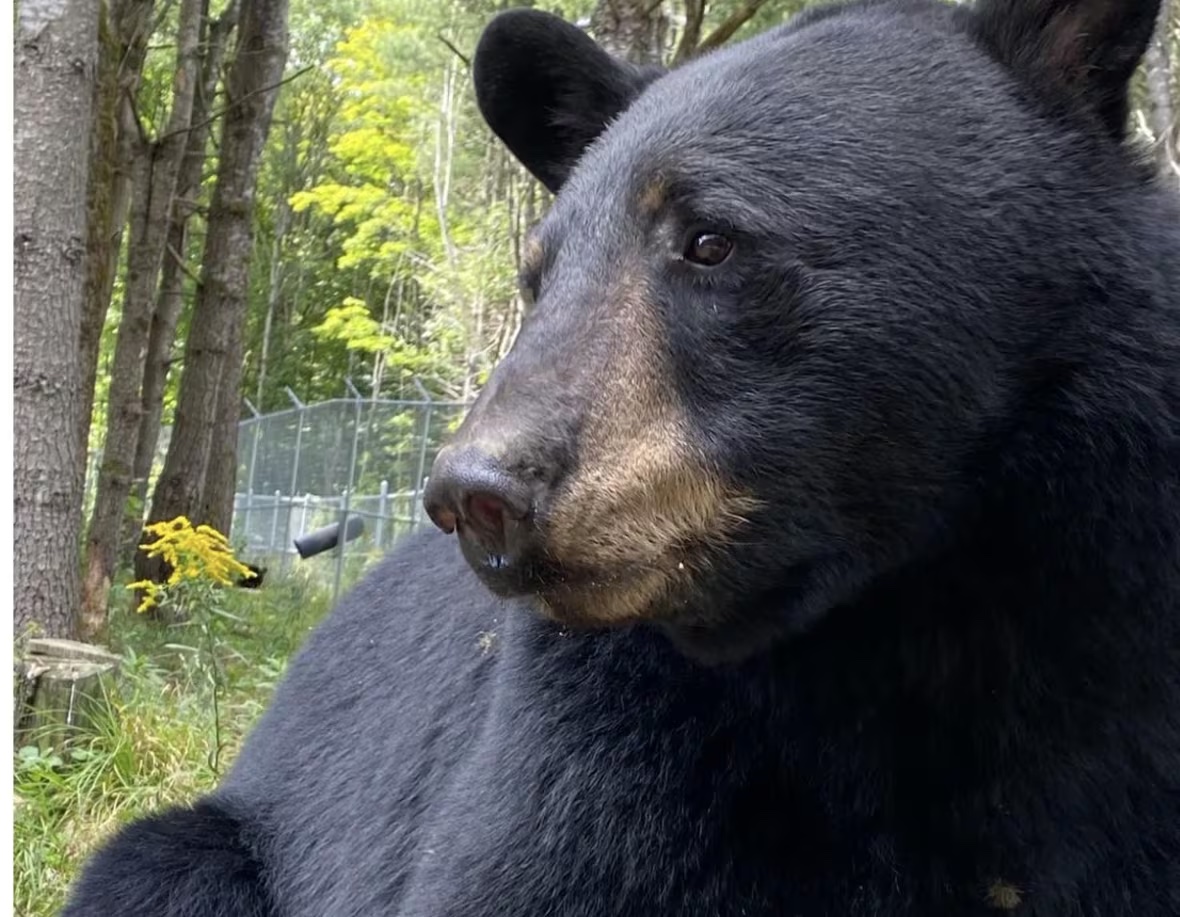Animal Justice is seeking leave to intervene in the sentencing of Marineland’s recent conviction of charges stemming from the cruel treatment of three young black bears who were forced to live in cramped quarters with minimal access to water for months.
Marineland is set to appear in provincial offences court on Thursday, August 15 in Welland, Ontario. This is one of the first successful prosecutions under Ontario’s Provincial Animal Welfare Service Act (PAWS Act), which became law in 2019.
In March, the notorious Niagara Falls marine park was convicted of failing to comply with orders issued by Provincial Animal Welfare Services to improve care for the bears, who are named Sasha, Maple, & Sugar (formerly known as Slash, Lizzie, and Toad). The orders included providing larger enclosures with appropriate enrichment and water sources.
But Marineland repeatedly failed to improve the bears’ living conditions, which led authorities to ultimately seize the animals and send them to sanctuaries, and lay charges against Marineland.

Photo: Aspen Valley Wildlife Sanctuary
Marineland Finally Convicted After Decades of Cruelty
While this marks Marineland’s first conviction, the marine park has historically evaded legal accountability in its troubling history of animal suffering and cruelty charges.
In 2022, Animal Justice conducted the largest zoo exposé in the country, where we documented black bears forced to live in a barren pit. These animals are solitary by nature, and they showed visible gashes on their faces that were due to fighting, according to employees.
In 2016, authorities charged Marineland with five counts of animal cruelty over the poor care of black bears, guinea hens, and a peacock. In 2017, the park received additional charges over the improper treatment of elk and deer. All charges were later dropped by the Crown prosecutor.
In 2021, Marineland was charged with criminal animal cruelty for forcing dolphins to perform for entertainment—a practice that has been illegal in Canada since 2019—after Animal Justice filed a legal complaint with authorities over Marineland’s dolphin shows. Unfortunately, this charge was also dropped by the prosecutor, who claimed that going to trial was not in the “public interest” after Marineland threatened to make the trial long and complex.
In 2021 and 2022, Animal Justice filed multiple legal complaints with Animal Welfare Services after devastating videos surfaced showing Kiska, known as the loneliest orca in the world, floating listlessly and slamming her body against the side of the tank in a clear display of extreme distress. Tragically, Kiska died in March 2023 after suffering in a tank for over 40 years, and in solitary confinement for over a decade.
But it’s not just Kiska who recently lost her life at Marineland—a shocking 17 whales, one dolphin, two seals, and two sea lions have died at the marine park since 2019. The animals at Marineland desperately need protection, and as many as possible should be sent to sanctuaries.
